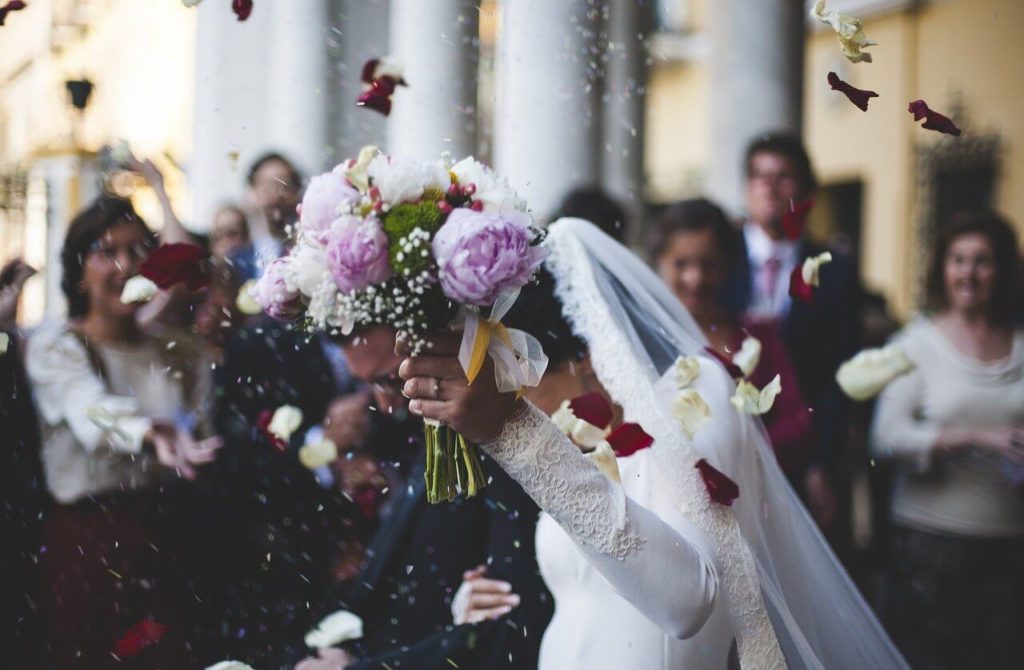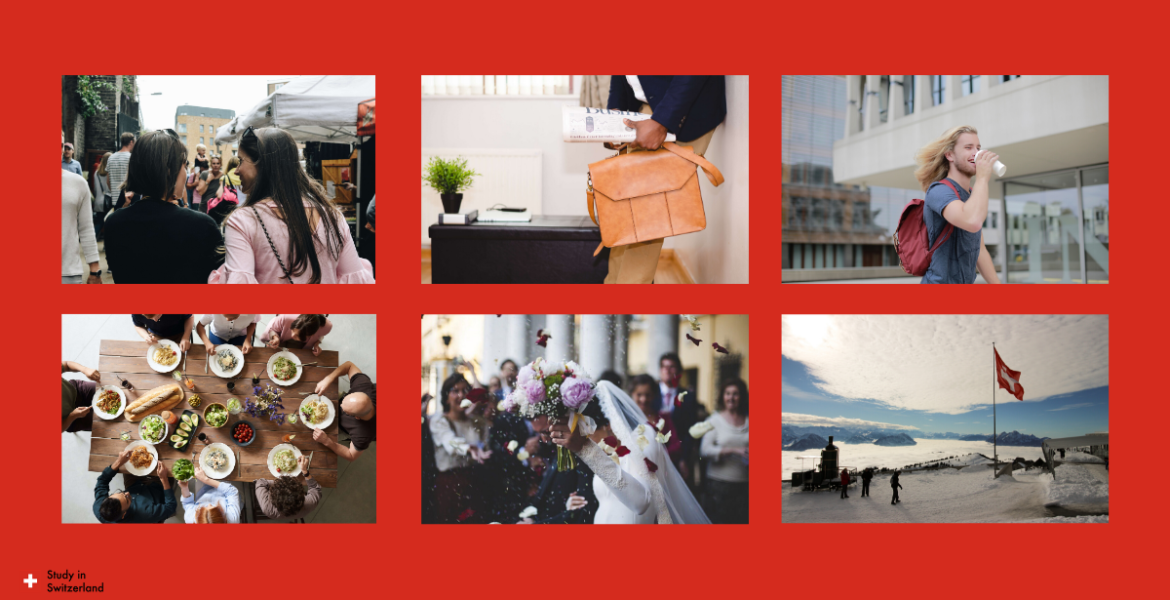Every person who wants to live in a new country has to get used to its social customs and etiquette. Not only because you’ll want to know the dos and don’ts when it comes to social situations, but also to understand why they do what they do. Every country has its social customs, culture, and traditions. There are some things which are customary to do and some things that society doesn’t accept.
Switzerland is one of these countries. Despite being a multicultural country, there is a range of customs that unify the whole place.
Social Etiquette

A foreigner in a new country may sometimes be confused as to what to do, how to behave, and talk to the people of that country. Cultures differ from other cultures and if you don’t know much about the country and its social customs, you can easily unintentionally offend the people.
Greetings
German, French, and Italian cultures have influenced Switzerland. While Germans are considered to be very cold and Italians to be quite affectionate, the Swiss are in the middle. They are neither too warm, neither too cold kind of people.
When meeting someone for the first time in Switzerland, a handshake will do. You deliver the handshake while maintaining eye contact with that person. Breaking eye contact is considered to be very rude. However, if you’ve met someone more than one time, the greeting is more informal. Now, you can kiss them lightly on the cheek three times.
When talking to someone you’ve never met, you should approach them with the family name, or use the formal pronoun (Sie). You’ll continue this formal approach until they tell you otherwise.
When in the street or in the shops, you should greet everyone. This applies to small towns and villages where everyone knows everybody. Swiss people really appreciate this. They’ll make you feel welcome for as long as you’re respectful to them. In which language they’ll greet you depends on which canton you are. Usually, the most used greetings are “Grüetzi,” “Salü,” “Hoi,” or “Ciao.” You can certainly try to speak in English. Even if they don’t know much English, they sure can return a simple greeting.
Street behavior
Swiss people have created rules and customs on how people should behave in public. Through them, the Swiss want to ensure they’re maintaining a safe space where people don’t harm or disturb others.
Don’t litter
In Swiss society, it’s unacceptable to litter and throw garbage on the streets. It’s also a punishable act by the law.
Respect older people
Elderly people are highly respected in this country. Therefore, Swiss people require the same from you and other foreigners. You should always respect the elderly by giving them your seat.
Don’t chew gum
If you’re in the mood for gum, try not to chew it while in public. It’s considered a rude and irritable act by the Swiss.
Be quiet
Swiss don’t like noisy people. You should keep quiet while in public or in closed places like public transportation. No one needs to hear about your business.
Business Etiquette

It’s a no-brainer that Switzerland is the business hub of Europe considering its economy and the discipline of Swiss businessmen. In case you want to be taken seriously by these people, you need to follow their rules.
Make appointments
No one in Switzerland will meet you without an appointment. They’re crucial, especially in the business area. If you’re planning on meeting a particular person, you have to schedule an appointment beforehand. Streamline your scheduling process with appointment scheduling software, ensuring seamless meetings and optimal time management.
Punctuality
After the appointment is made, you need to go there on time. They don’t appreciate you being late. It would be best if you went there five minutes earlier. If you can’t go there at the scheduled time, you must cancel promptly and give a fair explanation.
Dress code
Swiss businessmen value people who make an effort to look professional. In the business zone, men and women are expected to follow the professional business code.
Men should wear conservative yet stylish suits, cotton designer shirts, and ties, while women should wear suits and dresses combined with subtle accessories.
Safe conversations
There are a number of topics you can choose from to make a conversation with your Swiss colleagues. From world politics and economics to Swiss cuisine, to sports and positive aspects of Switzerland. However, some are suggested to avoid, such as Switzerland neutrality, military, and personal questions.
Gifts
It’s not necessary to exchange gifts at the very first meeting. If you really want to give your colleague a gift, you should do that once the business negotiations are over. Alternatively, you have the option to share gifts during festive occasions such as Christmas to create a more lasting impact.
Dining Etiquette

If you decide to move to Switzerland, you’ll meet new people there who might invite you to dinner sometimes. When this happens, you shouldn’t miss this opportunity. Like everything in Switzerland, even dinner has a protocol that needs to be followed.
Be on time
First and foremost, you should go and be there on time. You can go there earlier but no later than 15 minutes. You shouldn’t take this invitation for granted because if you miss one or two dinners, they’ll remove you from their invitation list.
Bring a gift
Assuming you’re going, you should bring something to the hostess or the kids, if they have any. It’s up to you what you choose to bring them. However, the gift should be modest as you may make them feel uncomfortable if it’s an expensive one.
Wait for the others
When you’ve sat down at the dinner table and fixed your plate, you should make sure that everybody there has also set their plate. Before you start eating, you should say, “Guten Appetit.” In the case of the wine, you should wait for the host to begin the toast before you drink. When toasting, you should look everybody in the eyes.
Mind your manners at the table
It’s essential to be careful with your behaviors at the dinner table, from how you put your hands on the table to how you eat and what cutlery you use.
While eating, keep your wrists on the table and make sure your elbows are hanging from them.
Also, you should sample everything that is handed to you during the dinner and finish whatever you have on your plate. Doing otherwise is considered impolite in Swiss culture.
When you’re finished, put the knife and fork on the plate side by side to form a 5:25 clock position. In that way, you inform the hostess that you’re done, and she doesn’t have to put you more food.
Leave early and invite your hosts back
An unspoken Swiss rule is that the guests should leave before midnight. If by chance you’re invited to a dinner, keep this in mind. You should give the hosts the space to put things in order. Leave by thanking them and asking them for dinner at your place. Swiss people expect the same efforts from you.
Wedding Etiquette

Every country and culture has different traditions when it comes to weddings. However, Swiss traditions aren’t that different from those of other European countries.
Wedding ceremony
The type of wedding one will have depends on the couple. However, they can choose from two kinds of them. The first is the civil ceremony, where the couple and their witnesses go to the city hall and get legally married. The other is the church ceremony, where the couple invites family members, friends, colleagues, and acquaintances and gets married in a religious institution.
Dress code
Swiss wedding dress code is similar to other cultures. The bride wears a white gown, while she puts a traditional crown or a wreath on the head. The crown or the wreath symbolizes her youth and purity. After the exchange of the vows, the wreath is removed and burned. If the wreath burns easily, she is regarded as a lucky woman.
On the other hand, the groom puts on a suit, a white shirt, and a tie. The same outfit is worn by the male guests. Whereas female guests put on gowns of every color aside from white.
Wedding superstitions
After the ceremony is over, the reception starts. Usually, the bridesmaid guides guests towards the reception place, and then the bride comes and gives them a handkerchief. The guests have to give the bride a coin for the handkerchief. According to the Swiss belief, this handkerchief means good luck.
After the ceremony, the newlyweds plant a pine tree. The tree symbolizes fertility and luck. The guests may bring old porcelain to the wedding, which they throw on the floor. They believe the broken glass brings good luck to the couple.
Wedding entertainment
The guests’ entertainment is in the hands of the best man and the maid of honor. They compile a program that will amuse the guests and fill the time between the ceremony and reception.
Swiss people like to play games at their weddings. One of the most frequently played games is the kidnapping of the bride. This game focuses on the groom, who will have to find the bride or chop a block of wood.
Another game is the “Spalier Stehen.” This game is played after the officiating ceremony. The friends of the couple are separated into two rows between which the couple will walk. They wear matching outfits and keep sports equipment in their hands, depending on the hobbies of the couple. This game symbolizes the challenges that await the newlyweds and how they can overcome them together.
As you can see, Switzerland has a number of customs that are similar to other cultures but also different in their own way. If you want to feel like you’re part of Swiss society or you want to be respectful in their presence, you need to get used to these customs.



Thanks for the very informative and educative pieces of information.
I note to make use of the same during my ensuing visit to the country, soon after the present pandemic.
Similar articles in future shall enrich our knowledge besides giving an opportunity for better understandings.
Such an attempt deserves highest degree of appreciation.
My best wishes are there with lovely countrymen and the country as well.
With Best Regards AND Thanks
Hi Anup,
Thank you so much for your kind words. It means so much to us. It’s our mission to provide our readers with interesting and informative articles, and positive feedback from you (the readers) is an indication that we’re in the right direction.